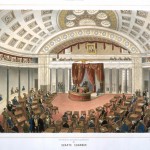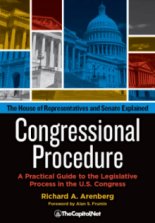Presidential Succession (CongressionalGlossary.com)
From the Congressional Glossary – Including Legislative and Budget Terms Presidential Succession President Gerald Ford – Remarks on Taking the Oath of Office, August 9, 1974 Under Article II and the Twelfth, Twentieth, and Twenty-fifth Amendments to the Constitution, Congress has critical roles to play in the selection of the president and vice … Read more







